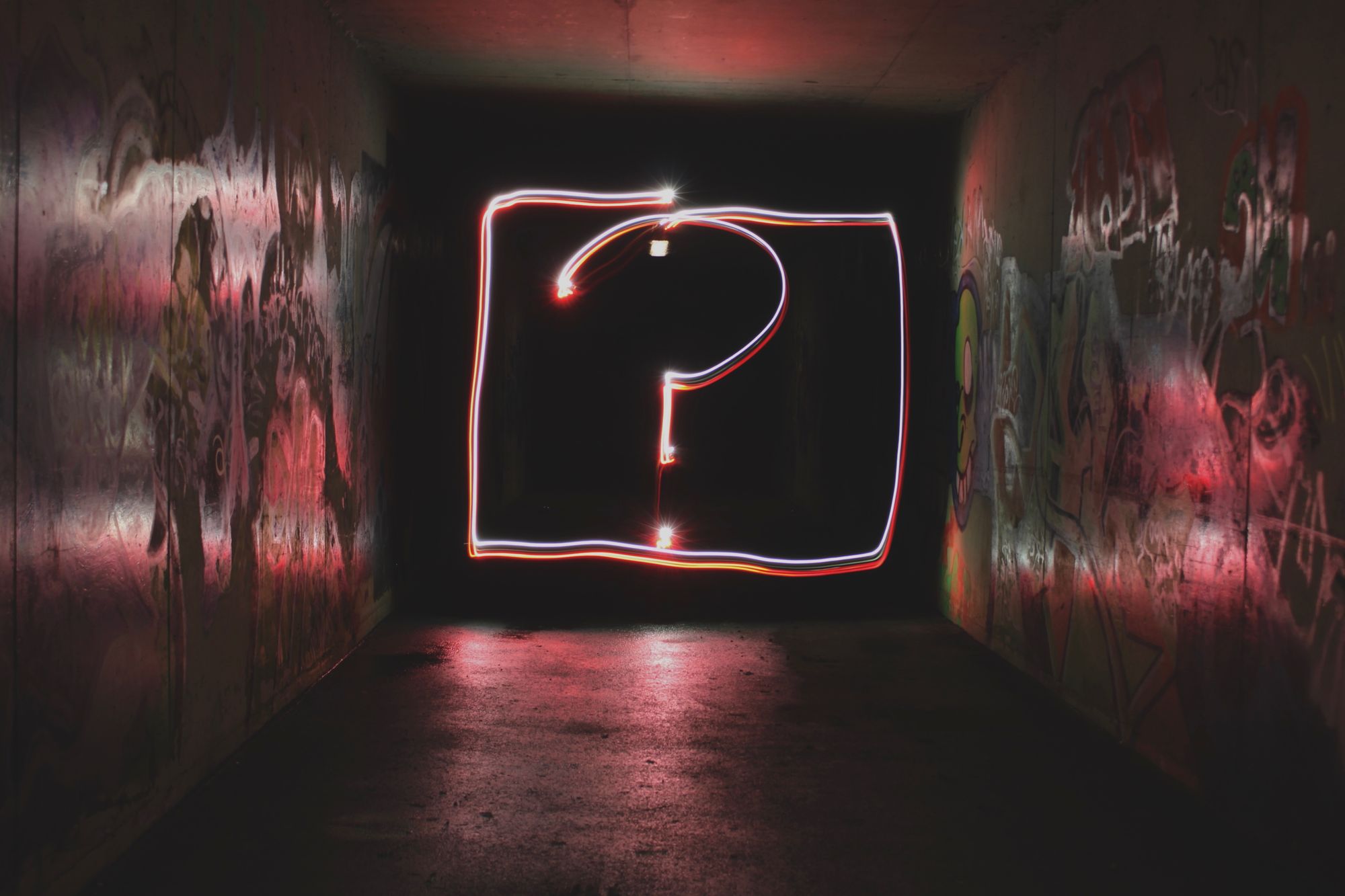Do you know how to use a question mark correctly?
You might be wondering, do I need a capital letter after a question mark? We breakdown how to use question marks and their grammatical rules.

To most people, the answer to the question is probably an overwhelming "Yes!". But, do you really?
Let's start with the basics
The basics are simple: The question mark goes at the end of a direct question.
Where are you going?
Who is that?
What is the date today?
Though asked without an expectation of an answer, a rhetorical question is nonetheless a question and requires a question mark at the end.
Is the Pope Catholic?
Here was a Caesar! When comes such another?
Shakespeare, Julius Caesar, Act 3 Scene 2
Fun fact: In the 16th century, English printer Henry Denham invented the reversed question mark "⸮", which was used at the end of a rhetorical question. As you may have noticed, it did not become a permanent part of English and fell out of use in the 17th century.
What about indirect questions?
When a question is embedded inside a sentence, it is known as an indirect question. If an indirect question is embedded inside an interrogative sentence (i.e. one that asks a direct question), then a question mark is required as per above.
Indirect Question: Could you tell me where the toilet is?
Direct Question: Where is the toilet?
Indirect Question: Do you know what time the cafe opens?
Direct Question: What time does the cafe open?
If an indirect question is embedded inside a declarative sentence (i.e. stating a fact or an argument), it is a statement and hence a period/full stop is used at the end instead of a question mark.
Statement: I wonder who is coming to the party.
Direct Question: Who is coming to the party?
Statement: She asked whether I was into rock music.
Direct Question: Are you into rock music?
Is it really a question?
When a question is really a direction or an instruction, it is more appropriate to use a period/full stop as opposed to a question mark.
Would you take this to Hugo for me? (Asking for a favor)
Would you take this to Hugo as I asked you to do yesterday. (This is an instruction)
Do you capitalize after a question mark?
The short answer is "Yes". What about the long answer?
A question mark is a form of terminal punctuation, which refers to any punctuation mark that is used to identify the end of a sentence like a period/full stop (".") or an exclamation mark ("!"). Since these punctuation marks indicate the end of a sentence, they therefore need to be followed by a capital letter to start the next sentence.
One of the exceptions to this rule is if the question mark is inside a quotation before a dialog tag (e.g. "She/he said", "Sam asked"). A dialog tag following a direct speech is not capitalized and the punctuation inside the quotation marks does not change this.
"How much does it cost?" he asked.
"Does it really matter?" she questioned.
Question upon question
What about a series of questions that continues the same idea? This is the question (no pun intended!) that divides the grammar enthusiasts. Historically, it seems like it is acceptable to not capitalize following a question mark in this circumstance. For example, if a main question is followed by a series of brief and related questions, it is acceptable to start the brief questions with a lower-case and end with a question mark.
Does the science of medicine prevent death? or the institution of government prevent crime?
The Amrican Review: A Whig Journal of Politics, Literature, Art and Science (1847)
Who will win the championship? the favorite? the dark horse? or perhaps someone that no one expects?
However, modern usage of question marks follows the terminal punctuation rule strictly. That is, a question mark ends the sentence, hence the following word must be capitalized regardless of whether it follows up on the previous question.
Should I go here? Or perhaps over there?
Does Craig have the best mustache? Or is it Nick?
As with most things in life, there are multiple ways you can do things, but one thing for certain is you must be consistent. Decide what you style of writing you will use and adopt it consistently across your work.

